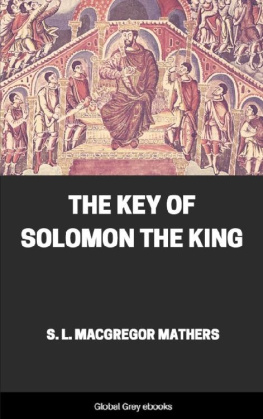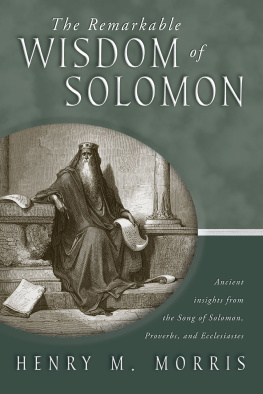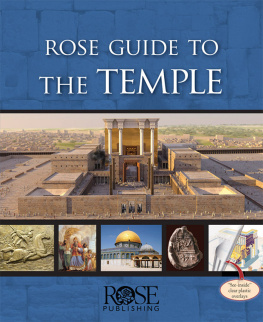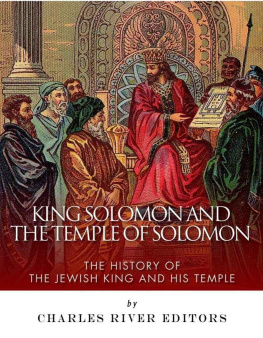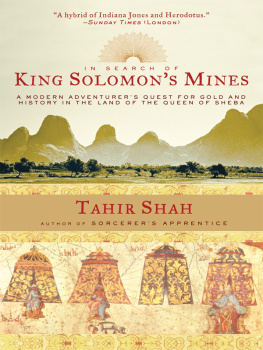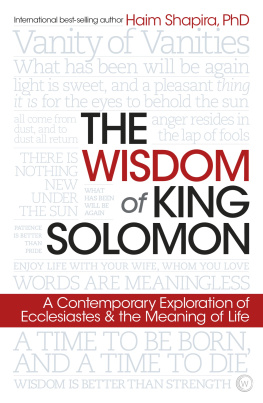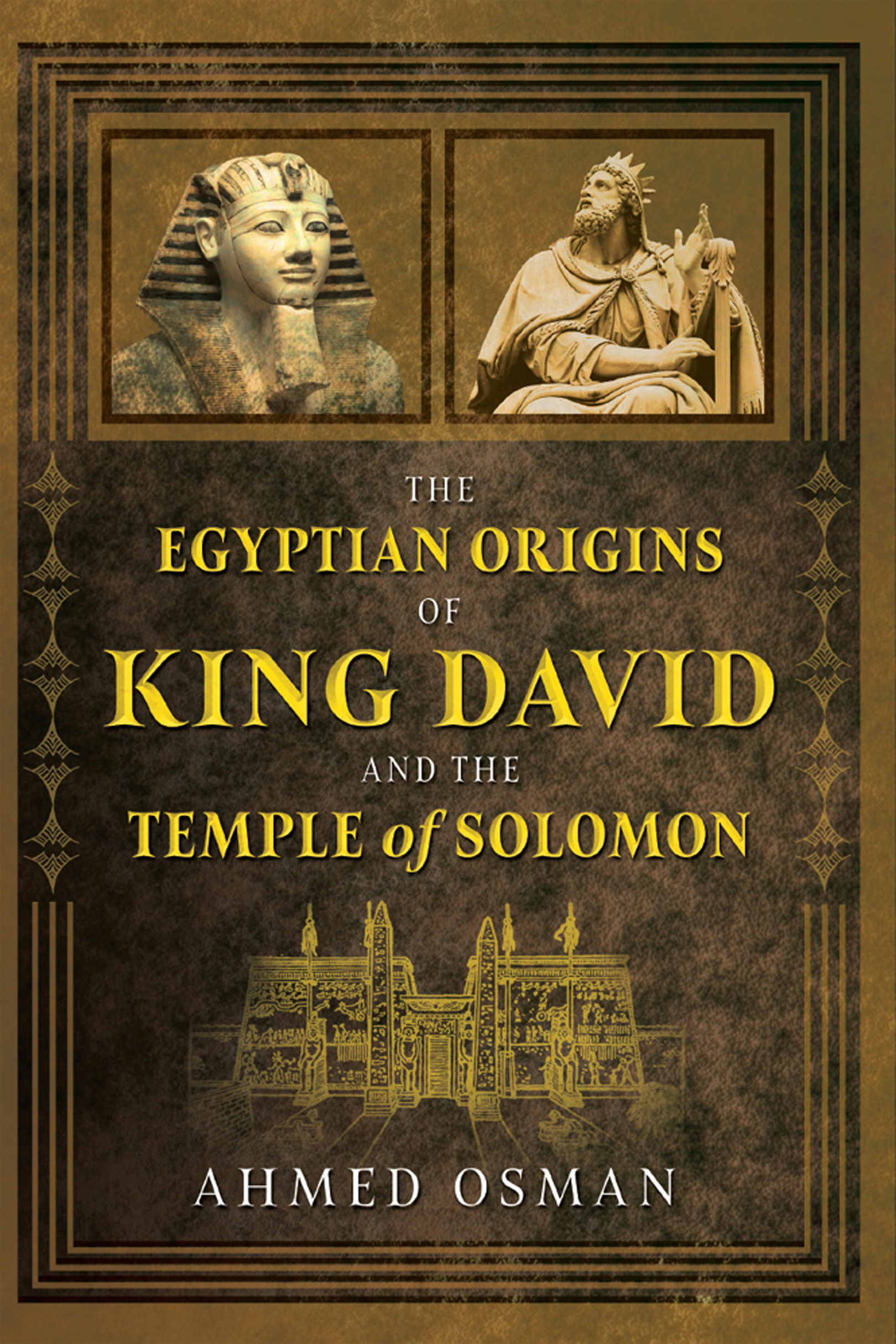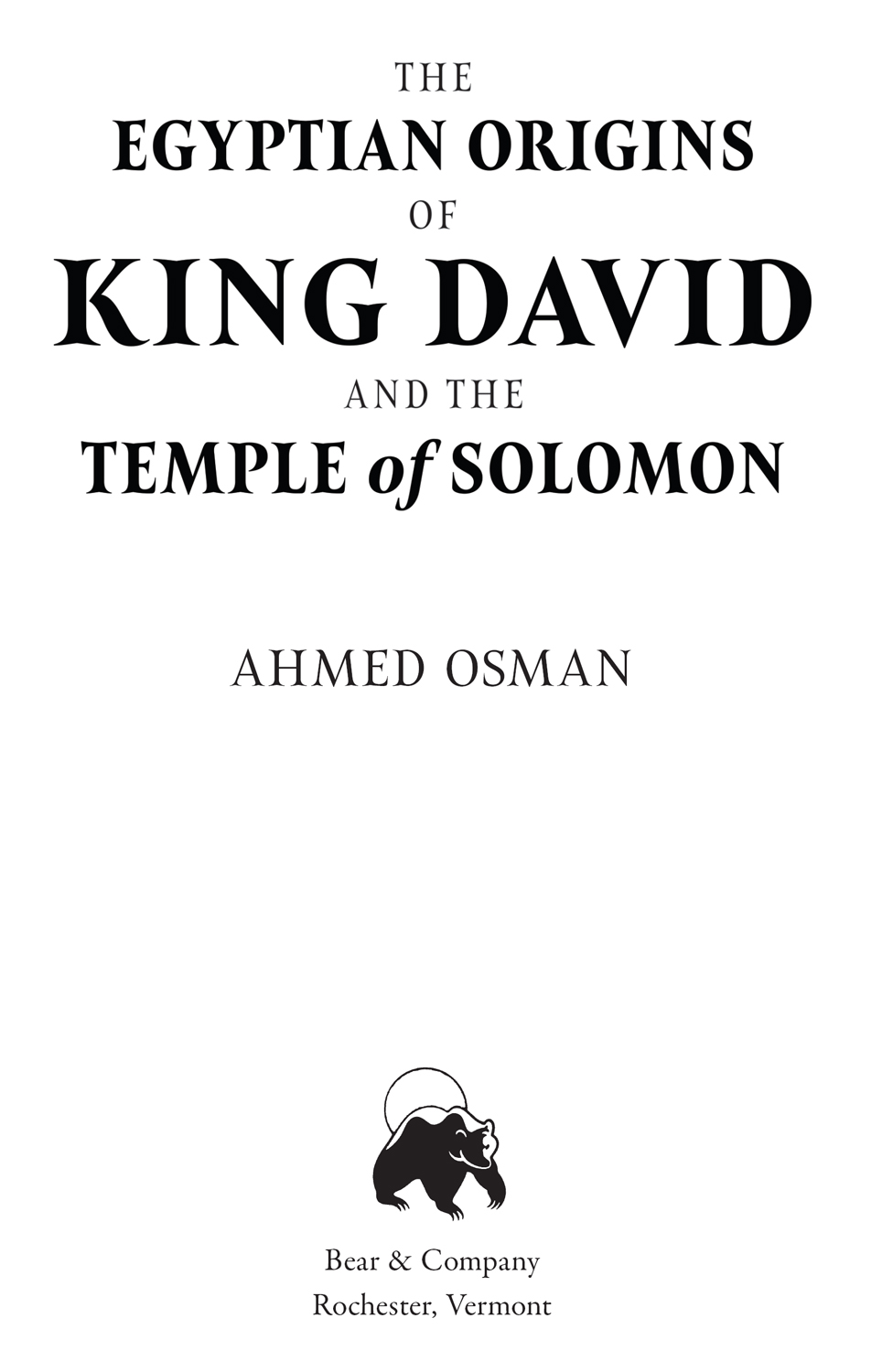To the followers of Hermes Trismegistusthose people, in different parts of the world, who never forgot the wisdom of ancient Egypt.

My gratitude to Kayla Toher and Richard Smoley for their help in preparing the manuscript for publication.
THE EGYPTIAN ORIGINS OF KING DAVID AND THE TEMPLE of SOLOMON

No one since Sigmund Freud has done more to show the connection between ancient Egypts Amarna period and the biblical stories of Joseph, Moses, and the Exodus. Ahmed Osman now provides compelling new evidence showing the true roots behind the establishment of the kingdom of Israel and the building of the Temple of Solomon.
ANDREW COLLINS, AUTHOR OFTHE CYGNUS KEY AND GBEKLI TEPE: GENESIS OF THE GODS
Ahmed Osman has discovered an intriguing back door into biblical history. Walking the tightrope between skeptical archaeologists and true believers of the Bible, the author asks a compelling question: Did Hebrew scribes attribute the military victories of an Egyptian pharaoh to David, the famous slayer of Goliath?
RAND AND ROSE FLEM-ATH, AUTHORS OF THE MURDER OF MOSES: HOW AN EGYPTIAN MAGICIAN ASSASSINATED MOSES, STOLE HIS IDENTITY, AND HIJACKED THE EXODUS
Israel is the illegitimate son of Egypt,
Who challenges his father to accept him.
INTRODUCTION
The History behind the Bible
THE BIBLE IS A BOOK OF RELIGIOUS FAITH that includes many miraculous events and supernatural characters, an account of the creation of the universe, Adam and Eve, and the Floodall of which could be understood symbolically. But the Old Testament also mentions ordinary people living within an allegedly historical framework, such as Abraham, Jacob, Joseph, Moses, David, and Solomon.
In modern times, historians and archaeologists have found no evidence to confirm the biblical accounts of these characters and their stories. As a result, some have tried to force the evidence to agree with the biblical account; others have completely denied the historicity of the Bible stories, regarding the accounts of Moses, David, and Solomon as fiction.
I do not agree with either of these views. I believe that the core of the biblical account does describe historical characters and events. But the biblical editors, who wrote the stories, placed them, chronologically and geographically, in the wrong place.
The script originally used to write Hebrew only emerged sometime in the tenth century BCE, as a development of the Phoenician script, with which it is more or less identical. Consequently, the first books of the Bible could only have been written after this date, more than three centuries after the time of Moses, who supposedly lived in the fourteenth and thirteenth centuries BCE. One then wonders: if the Hebrew script had not yet been developed in Mosess time, which script did God use to write the Ten Commandments?
After centuries of oral transmission, the biblical writers had available to them many different traditions, as well as written historical information, from neighboring countries such as Babylonia, Syria, and Egypt. To judge by the way they composed their stories, it seems that the scribes must have placed some accounts either in the wrong chronological time or in the wrong geographical location. In my view, this is the main reason why historians and archaeologists have failed to find verifying evidence. However, when we place the biblical stories into their correct historical settings, we do find confirmation.
As we shall see in this book, I believe that evidence for the principal biblical stories can be found not in Canaan but in Egypt, during the Eighteenth Dynasty, in the fifteenth and fourteenth centuries BCE. Although the Israelites were originally only one of many historically unknown Hebrew tribes, they became part of recorded history when they intermarried with the pharaonic house of Egypt.
The Man of God
KING DAVID, ONE OF THE MOST FASCINATING CHARACTERS in the Bible, was a courageous and cunning man, a complex figure larger than life. Looked upon as a man after Gods own heart, David is believed to have been able to understand the mind of the divine being. He is thought to have lived in the tenth century BCE, to have reigned as king of Israel for forty years, and to have died at the age of seventy.
David was a shepherd, a descendant of Judah, one of Israels twelve sons. He lived in Bethlehem before he was anointed by the prophet Samuel to be the king of Israel. David is known for his diverse skills as a warrior and is said to have established a great empire extending between the river Euphrates in northern Syria and the river Nile in Egypt. He is also known to have been a musician and a poet, and seventy-three of the 150 Psalms in the Bible are attributed to him. David is also regarded by Islam as a prophet and messenger of God who received the divine revelation of the Psalms. We can see the beauty of his soul when we read his Psalms:
The LORD is my shepherd, I lack nothing. He makes me lie down in green pastures, he leads me beside quiet waters, he refreshes my soul. (Psalm 23:12)
David is promised by God that even after his death, his descendants will continue to rule his great empire. His bloodline will become the only legitimate royal bloodline in Jewish history. As the Bible says: The word of the LORD came to Nathan [the prophet], Go and tell my servant David,... When your days are fulfilled and you rest with your ancestors, I will raise up your offspring after you, your own flesh and blood, and I will establish his kingdom. He is the one who will build a house for my Name, and I will establish the throne of his kingdom forever. I will be his father, and he shall be my son (2 Samuel 7:45; 1214).
So, like the Egyptian pharaohs, David regarded himself as a son of God: [The LORD] said to me, You are my son; today I have become your father (Psalm 2:7). Ultimately, at the end of history, the Messiah will come from the line of David. We find several verses in the Bible relating to the future of the Davidic messiah: The days are coming, declares the LORD, when I will raise up for David a righteous Branch, a King who will reign wisely and do what is just and right in the land (Jeremiah 23:5). While the Jews are still waiting for their messiah, Christians believe that this prophecy was fulfilled in Jesus Christ.
After their Exodus from Egypt and their settlement in the Promised Land, the Israelites formed a loose confederation under the leadership of judges. At the time of the prophet Samuel, the twelfth and last of these judges, the Israelites came under attack from the Philistines, whose five fortified cities, Ashdod, Gaza, Ashkelon, Gath, and Ekron, were on the southeastern shore of the Mediterranean Sea, between modern-day Tel Aviv and the Gaza Strip. After the Israelites were defeated by the Philistines, the elders thought to bring the Ark of the Covenant from Shiloh (the modern Khirbet Seilun in Samaria) into their camp to help them in their fight. This is supposed to have been the Ark of the Covenant that Moses had placed in the Holy of Holies in the Tabernacle he built in the wilderness after the Exodus, and in which he placed the Ten Commandments. Nevertheless, not only were the Israelites defeated again in battle, but the Philistines took the ark from them. At that point the people of Israel demanded to have a king to rule over them, like other nations, so they could face the threat of the Philistines. Under direction from God, Samuel anointed Saul, son of Kish the Benjaminite, as the first king over Israel, from his town, Gibeah, north of Jerusalem.



